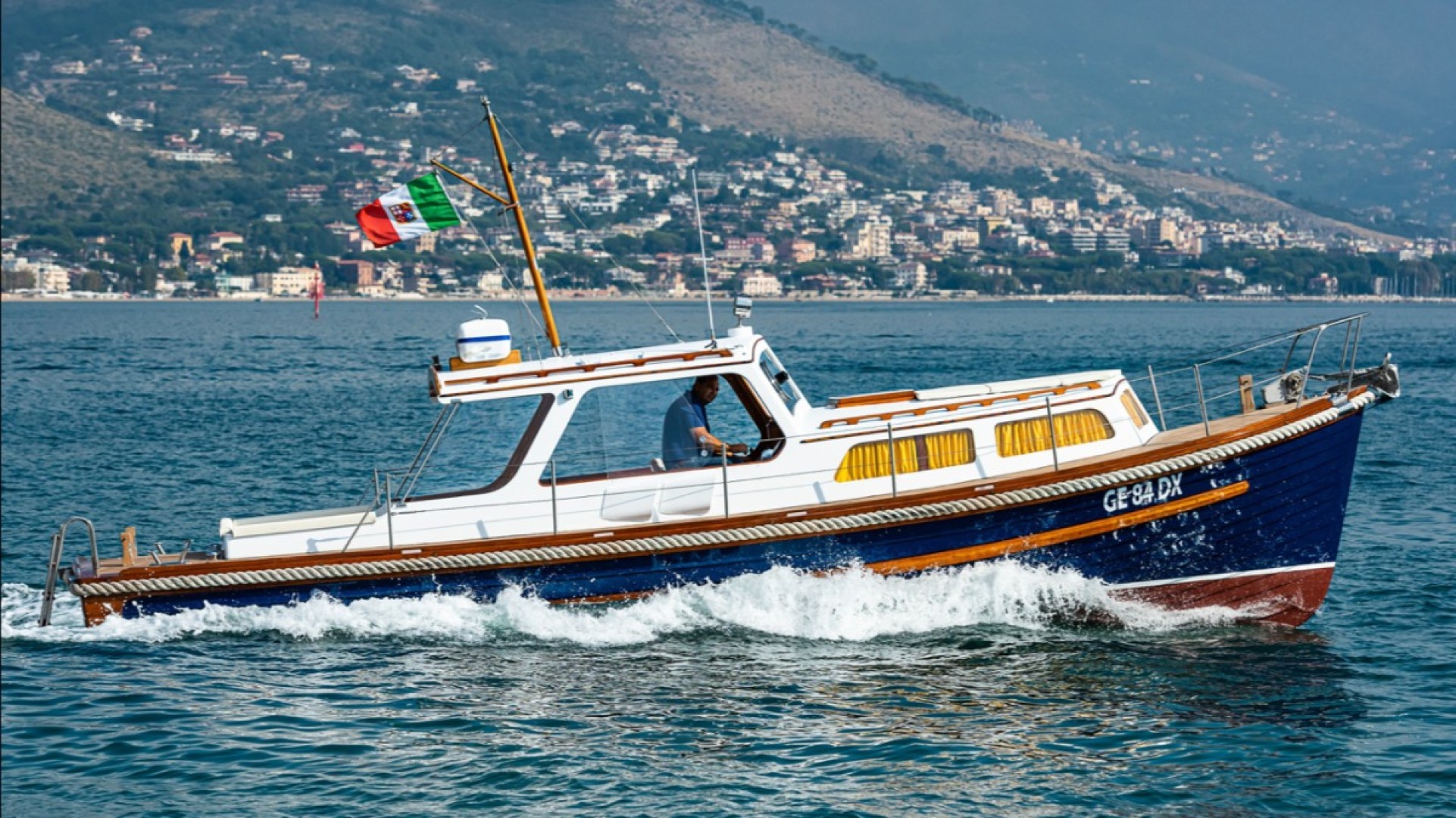
Sangermani: sometimes the name is enough to bring back memories and stir emotions. For boat enthusiasts, this name undoubtedly belongs to the Ligurian shipyard behind some of the models that have made Italian and international boating history, models in which combined function and elegance have always been a distinguishing feature.
A perfect example of this is Scilla (formerly Duchessa), a 10.30-metre pilot boat that the Sangermani shipyard built in 1966. After being out of water on a dock for fifteen years, she has been given a new lease of life, thanks to the refitting carried out by architect Tommaso Spadolini at the request of her new owner, the passionate entrepreneur Cesare D’Amico. Relations between the two men began over thirty years ago and have led to the construction of four yachts (from 19 to 48 metres) and the refitting, last year, of a 1978 Magnum 38.
“My son Salvatore brought this pilot boat to my attention,” says Cesare D’Amico. “As soon as I saw a motorised Sangermani I knew it had to be ours, and we bought it in February 2021. Talking with architect Spadolini, even before work began, we agreed on one thing: we had to keep as much of the original design as possible, but also try to save as many of the on-board structures and furnishings as we could.”
With this input in mind, when Scilla arrived at the Cantiere Azzurra in Gaeta (Italy) to be refitted (with work expected to last a year), Tommaso Spadolini and the shipyard’s owner, Ferdinando D’Urgolo, carried out nothing short of a census to catalogue what was absolutely untouchable on board, what could be repaired and what would have to be replaced.
“The high quality of the original Sangermani construction was immediately apparent to us,” explains Tommaso Spadolini. “We stripped everything down to the planking and only had to intervene in three or four places to reinforce and replace the wood. We then opted for an external wet-system treatment to ensure maximum water resistance and guarantee easier maintenance in the future.”
The eyes of anyone looking at Scilla are immediately drawn to the elegant, original 1960s rope fendering system and the pronounced design of the deckhouse. In the bow section, a fairly narrow sunbathing area with cushions has been created, precisely to prevent the curvature from making guests uncomfortable when they are relaxing. The love and care for the original elements is clear when looking at the cockpit, where all the original 1960s instrumentation has been retained, with the exception of the throttle. The porthole in the front section of the plexiglass window was disassembled, and every element cleaned before being put back into place. Everything was recovered by studying it down to the tiniest detail, as shown by the checkrails, the stanchions and even the holds for securing the boat hook.

“In the cockpit, we had to rebuild the storage units keeping true to the design and adding practical C-shaped cushions,” continues Tommaso Spadolini. “With the addition of a table, this becomes a comfortable dining area. Originally, freshly caught fish was stored under the aft seat in the ice box, which we replaced with a large refrigerator. To make the area even more welcoming, two tubular supports can be inserted into the side rod holders recessed in the deck. They hold up the awning, which is fastened to the superstructure with a zip fastener, turning the entire cockpit into a sheltered area.”
At the stern, although it was not present in the original design, a swim platform was added specifically for fishing, with a practical steel ladder for climbing back aboard.
Going below deck is like travelling through time. All the original mahogany wood (in the vertical elements and in the floorboards) has been restored, varnished and polished. Even the formica counter tops are the original ones and the bronze switches still have “on-off” written on them. Sticking to tradition does not mean refusing modernity. The electrical system, for example, has been completely replaced and the 220V sockets (which are now essential) are present but simply… not visible.
Tommaso Spadolini and Cesare D’Amico would also have liked to keep the original 225 hp DAF engines, but they decided to replace them for practical reasons. “We chose two naturally aspirated engines made by the Italian company AS Labruna, because we had no way of installing engines with intercoolers. However, we managed to retain the original coupling and shaft line. This made the boat heavier, but we succeeded in keeping the same centre of gravity. With the old engines, the speed of Scilla (Duchessa at the time) was 14-15 knots; today the boat reaches 24 knots. And the boat, true to the British designs of the 1960s, does not feel the sea at all.”


